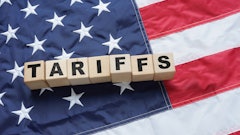
With the Biden Administration just more than halfway through its first year in office, it has already made clear to the corporate world the importance of complying with denied party screening rules. It forms one of the major policy foundation stones that also includes battling the pandemic, sorting out critical supply chain shortages and coaxing the economy on the road to recovery.
Among recent developments are new sanctions and export controls on China, Russia and Myanmar, updated guidelines on military/military intelligence end-user restrictions and strengthened emphasis on making sure companies are not doing business with organizations partially or wholly controlled by denied parties.
Intertwined into all this is the fact that e-commerce is booming, thanks to the Coronavirus disease (COVID-19), which has been the catalyst for unprecedented e-commerce growth as people worldwide have become more comfortable making purchases online. Because of all these factors, the chances for businesses to unwittingly breach compliance regulations has become exponentially higher.
Export compliance violations that have hit the headlines over the past few months included a major enterprise resource planning (ERP) company and an online money transfer service. Multi-million-dollar fines were meted out in these cases. There is the additional, but undisclosed, funding to address reputational damage. It could, however, have been worse because the penalties might also have included revocation of export privileges and criminal charges accompanied by potential prison time.
The solution to mitigating these types of risk? Businesses must continually screen their trade chain partners and every financial transaction to weed out denied parties. And, they must make sure that goods, technologies and services are not destined for a sanctioned or embargoed country. Screening, therefore, should be an integral component of every organization’s governance, risk and compliance strategy.
Who needs to screen?
The simple answer is that all businesses need to screen for denied parties (also known as restricted, debarred and blocked entities). Even companies that don’t export should be checking because these so-called “bad actors” can be operating domestically.
A common misconception, though, is that only a select group of sensitive or high-risk industries need to screen (e.g., aerospace, defense, telecommunications, IT, energy, research, financial institutions). While it is true that they have a high bar when it comes to complying with U.S. and international export, trade and financial laws, it is equally true that ordinary businesses from across all industries also have an obligation to adhere to compliance requirements.
Unfortunately, for many types of businesses, the erroneous belief persists that compliance and denied party screening is not applicable. By increasing awareness surrounding the following misconceptions about compliance and restricted party screening, organizations can take a proactive and vigilant approach to mitigating risk and avoiding costly penalties.
Denied party screening myths
1. Screening doesn’t apply to our business, industry or country.
When producers can be penalized for breaching compliance laws, that should send an unambiguous signal that the rules apply to all businesses, not only to homeland security-sensitive industries. The regulations cover companies both in the United States and those outside the country that engage with the United States in any capacity, as well as all monetary transactions processed via U.S. banks and financial institutions. With the Biden Administration’s tougher stance on international trade compliance, businesses would do well to keep pace with emerging regulatory requirements in their risk management processes.
2. We don’t need to screen because we supply services, not products.
If money is changing hands, the parties to the transaction need to be screened because just one denied party in the mix can earn a visit from the FBI. Imagine using the following defense argument, “I didn’t sell them a physical product; I just sold these people a holiday package.” According to the regulations, it wouldn’t fly, which means that service industries such as tourism and hospitality, transport and logistics, accounting and finance, legal and many others are definitely not off the hook.
3. We rely on a third party (e.g. freight forwarder) to screen for us.
Many companies make the mistake of thinking that the burden of compliance rests with the shipping or freight forwarding company, but this is not always the case. The U.S. government can designate the owner or seller of the merchandise being exported (or imported) as the Exporter of Record, shifting the onus of compliance to both organizations.
4. Our company operates domestically so screening is not required.
This might sound logical, but an often-overlooked fact is that there are a significant number of U.S. nationals located in the United States who can be found on watch lists. How is this possible? It’s because this group of people were caught breaching compliance laws from American soil. Consequently, it would be wise for organizations to screen regardless of shipment destination.
5. Export laws don’t apply to us because we’re located outside the United States.
Regardless of where an organization’s headquarters or subsidiaries are based, it is highly likely that some, if not all, transactions flow through the U.S. financial system at one point in the purchasing or supply chain process. As such, these transactions fall under the purview of the U.S. Department of Treasury’s Office of Foreign Assets Control (OFAC), and therefore, should be screened.
6. We don’t need to screen because we don’t export to countries under sanctions or embargoes.
Avoiding countries under sanctions or embargoes is just one of the major variables that needs to be taken into account in the risk management equation. Not doing business with a denied party is another. These are mutually exclusive because not all denied parties reside in an embargoed country. The point is that while there are some countries under trade restrictions, virtually every nation has denied parties within its borders. Believe it or not, debarred individuals at one time even resided in Antarctica.
7. Our goods are EAR99, so we don’t need to screen.
In a recent case, a company was fined for delivering scrap metal to China. Why? Because the item ended up in the hands of a denied party. The EAR99 designation means that the item being shipped does not require an export license in most situations. The key words here are “most situations.” EAR99 notwithstanding, shippers still have to screen for denied parties in addition to ensuring they are not doing business with an embargoed country.
8. We already screened our customers and contacts once.
There is a reason why watch lists change frequently, even on a daily basis. It’s because new entities are being constantly added. There are that many bad actors being uncovered in the world all the time. So, it makes sense to say that someone not on a list today might be on one tomorrow. The best way to mitigate risk in this scenario is through continual rescreening. To ensure compliance, organizations would be best served by screening all transactions at multiple points throughout the business workflow or sales cycle.
9. We only need to screen the person to whom we’re shipping.
One of the most misunderstood areas of export compliance are the requirements surrounding end use. End-use compliance involves requesting documentation from purchasers to confirm they are the ultimate destination of the goods and will use the product they are receiving as intended. While obtaining an end-user statement doesn’t guarantee the veracity of the purchaser’s claim, this process demonstrates that a company has taken additional measures to ensure adherence to export and trade compliance laws. This due diligence will leave them in good stead if issues arise.
10. We’ll just pay the fine.
Treating fines as a business expense creates more problems than it solves. That’s because after the first offence, the government will be closely watching you. If there are further violations, expect fines to ratchet up, along with other more severe action, including revocation of export privileges, criminal penalties, and jail time. And, in all of these outcomes, reversing negative media attention would be next to impossible.
While screening for denied parties is not generally perceived to be a means of enabling business growth, it is fundamental in helping to ensure national security and economic interests are maintained.
Given that screening is mandatory, forward-thinking companies view compliance solutions, software and infrastructure as giving them a huge strategic and competitive advantage over rivals whose equivalent tactics and practices may not be as robust, or worse, may be non-existent. These companies see compliance as fostering growth since, by staying out of trouble, they can focus on their core business, and hopefully, attract customers that value a strong compliance program.



















